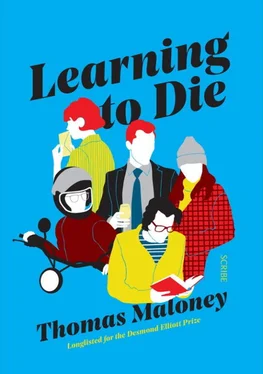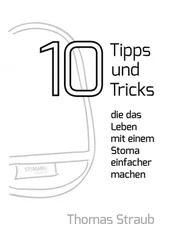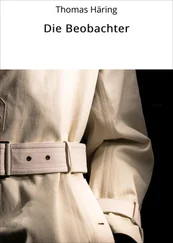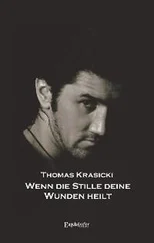That was ten years ago.
Mike Vickers is back in London, pounding the treadmill. The good news is that the prospective client has agreed to invest a cool two hundred million dollars in his system, subject to final board approval which is virtually assured. The bad news is that the very same system is down almost five per cent on the week. It could bounce back, of course — it has before — but as of now, both a chunk of his existing investors’ gains and a slab of his own end-of-year haul have gone up in smoke. He has effectively donated it to the dopey chumps on the other side of his trades — for every buyer there is a seller, for every loser a winner. This time their irrational phobias and foibles have paid off.
A tall woman is interval training on the treadmill in front of his: she runs hard for a minute or two, leaps off, straddling the machine as the belt whips round beneath her for thirty seconds, then hits the belt running for another burst. During one of her rests, Mike studies the lycra-clad outline of her thighs. If there were such thing as a perfect body, it would soon pall. But a woman’s beauty presents infinite variations: he has never seen these miraculous thighs before.
The walls of the gym are covered in mirrors, and where two walls meet he sees his own labouring reflection: the aspect not head-on but oblique; the image not reversed but true. Who is this sweaty, lecherous man in the corner, no longer in the first flush of youth, and how did he get here?
The careers questionnaire at school prophesied ‘marine biologist’ as his destiny, and ‘astrophysicist’ as Dan’s. Dan’s misdirection from galaxies to dizzy electrons was only a matter of scale, but Mike’s own path has gone more fundamentally astray. He won a place to study mathematics at Oxford — getting one over on Dan, whom Cambridge foolishly rejected — but his first term was a disaster. The simple, memorised recipes for A-level success were useless here, where maths was taught quite differently by real mathematicians who were baffled by his lack of ability. During the second term, though, he began to get the measure of his situation — not as a scholar but as a fraud and a bluffer. He spent four years polishing his act, his veneer of competence, so that even the supposedly fearsome scrutiny of Oxford’s Examination Schools merely bounced off it. After the last exam, he remembers quaffing champagne with the bewildered relief of a criminal who has just pulled off an outrageous heist and got clean away with it. Master of Mathematics. Master of anything. First Class.
The little mathematics he did grasp is all forgotten now: he’d probably fail a GSCE paper. He has come to realise that at the very core of his mind, where the weightiest and most precious substance should be concealed, there is a void. At the same time, he has come to realise that it doesn’t seem to matter.
It was from a rare satisfied client of his father’s that he first heard the words hedge and fund linked together. The man was a ferocious maths nerd who, learning of Mike’s academic triumph, mistook him for a kindred spirit. After a few cosy chats in his Vickers-built extension — triple-glazed, climate-controlled and mood-lit — the ferocious nerd offered him a job. ‘We’re one of the big fish, but you won’t have heard of us — and don’t bother looking for a website. We call ourselves traders, not portfolio managers. We don’t sit around managing. We make money by trading the right stuff at the right time: it’s a zero-sum game.’
So, instead of becoming a marine biologist, Mike became a trader’s assistant at a large and secretive hedge fund that had figured out how to turn the zero-sum game into a dead cert. The genius, he discovered, was only partly in the timing of the trades: it was also in the marketing and the fee structure. There was nothing illegal or dishonest. ‘We’re just giving the investors what they want,’ one Ferrari-owning cynic told him with a shrug. ‘Heads we both win, tails they lose. We call it the money valve.’
The traders weren’t all cynics. But Mike felt uneasy in those early days, and told himself the mystifying job was only temporary: a way to pay off a chunk of student debt while he thought about what he really wanted to do. What he really wanted to be.
That was ten years ago.
Glancing again at his reflection he dimly remembers fearing that he might become accustomed to a mean, material existence — fearing it, but never really believing it could happen. This is how it happens. The gentle reclassification of aspirations and ideals from noble to naive, the fading of frustrations as the heart accommodates. All will return later , he suddenly realises. He grasps at the thought and then hastily flings it away: all will return later in the terrible, terminal form of regrets.
Natalie Mock is back at home. The doctor has signed her off work for a week, but the team meeting is tomorrow and she’s going to try to attend. Dan has been brilliant: the house looks eerily spick and span as though on the market, the laundry has been done and her clothes folded the way she likes them, and the fridge is full. The showerhead has been replaced with a comforting, plasticky one with big holes that delivers a gentle but drenching rain; the cradle is no more. She keeps telling him the accident wasn’t his fault.
Natalie doesn’t like being off sick. Her salary is paid out of money that would otherwise be helping the most desperate people in the world, in countries where thirty-two thousand pounds goes a long way. ‘100% of your donation goes towards helping people like Mirembe,’ say the posters that she helps to design. It’s sort of true — some colluding donor has agreed to cover staff costs, to make it sort of true — but it’s sort of untrue. Unless you consider Natalie Mock to be a person like Mirembe.
Which in some ways she is. Both of them grew up without a father (Natalie’s died of a brain tumour when she was twelve), both are intelligent and kind-hearted — if Mirembe’s photo is anything to go by — and both have been unable to follow their dreams: Natalie was supposed to be an architect.
There the similarities end. She lives a comfortable life with a loving and reliable husband, a robust health that even a stab in the back can’t impair for long, free access to world-class healthcare, and the indescribable pleasure of catch-up TV.
Natalie knows that SmartAid’s expensive national fundraising campaigns peddle a subtler untruth than merely disguising their own cost. They represent each problem with a photogenic individual, vulnerable, desperate and yet so easy to help. Text MIREMBE to give her three pounds right now. Who wouldn’t? The true magnitude of the world’s suffering, its harrowing, godless injustice, its sheer bewildering self-inflicted self-perpetuating incurable fucked-up-ness, is vaguely understood by all but a subject better avoided. Feelings of helplessness and resignation are evoked; a need to escape, not engage.
Natalie knows this from personal experience: she prescribes herself the same deception every day. As she searches guiltily for the remote control, it occurs to her that Dan never feels helpless about anything. He doesn’t ignore difficulties, but simply works with what he’s got. This is both admirable and infuriating.
In the early evening, James F. Saunders receives a text message on his ancient Nokia: ‘ James. Good to meet u the other week. I believe u may have borrowed one of my books, and wanted to make sure u have the correct address to return it to. Take ur time tho. Mike. ’ Then a postal address and an email address.
James reads it again, and frowns. Brenda must have given the carrot-top 007 his number, which he considers a breach of trust. She’s not the only guilty one, though: on his desk, beside the creased paperback Montaigne, is another book. Not just a book — a thing of beauty: a 1759 edition of Charles Cotton’s translation in the original leather binding. Volume Two was all James could smuggle under his cardigan that night, but it contains three of his favourite essays. It turns out Mike doesn’t only spend his money on tasteless, pointless crap.
Читать дальше












